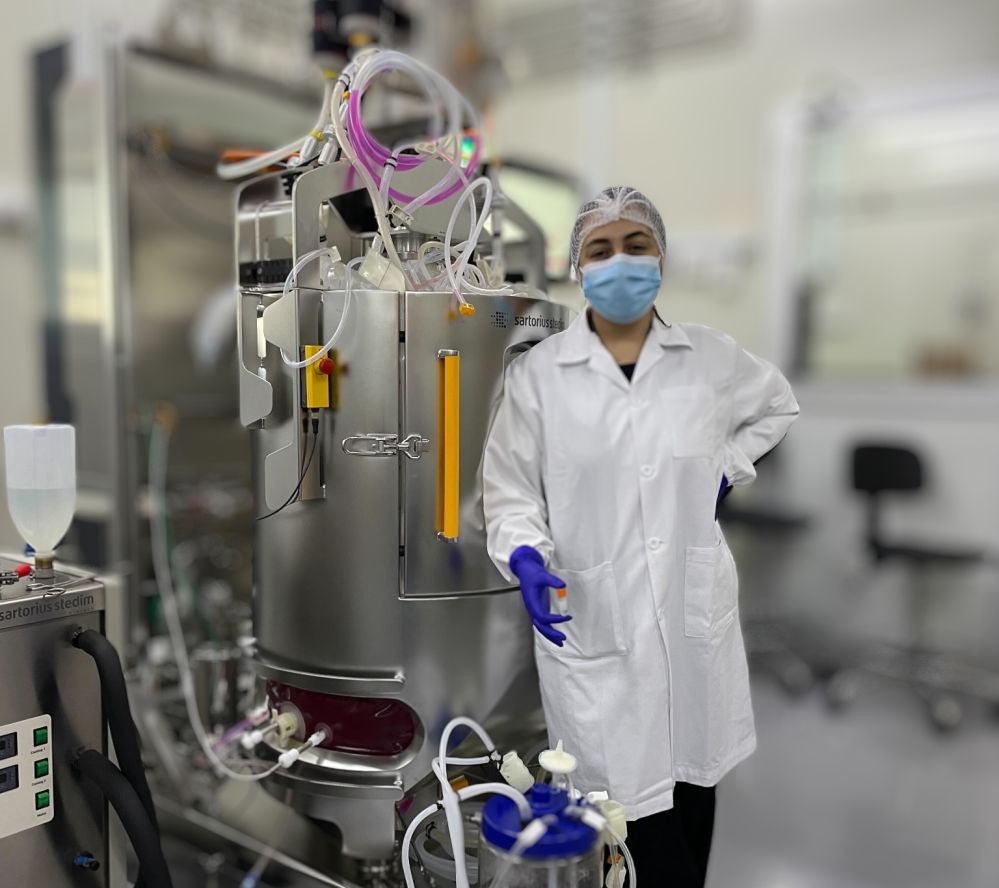Berkeley-based startup Orbillion has raised fresh capital that brings its cumulative funding to $15 million. The round follows a successful 200-liter production run which the company claims validates its predictive modeling platform for “de-risking” the scaleup process for cultivated meat.
The round was led by The Venture Collective and co-led by At One Ventures, with participation from YCombinator, Metaplanet, and global food investors including university endowments and strategic investors and follows a $5m seed round announced in 2021.
Orbillion’s platform, which simulates the media and bioprocess parameters that allow mammalian cell cultures to scale, predicts how cells cultured on a flat surface will perform in liquid suspension, such that Orbillion doesn’t have to waste time and money on as many costly lab trials to determine how its cells will perform, said cofounder and CEO Dr. Patricia Buber.
“With our 200-liter run, we could say, ‘Hey, the things that we measured in the lab and modeled at a larger scale were actually validated at this larger scale,’” Bubner told AgFunderNews. “The next step is to do this again at larger scale. But [from a technoeconomic perspective] we think we can be at economic production at around 2,000 liters in scale.”
She added: “Our approach was always to be lean, asset-light, and to build strong partnerships so we can raise less and become profitable sooner.”
“Despite negative sentiment and challenges around scale-up dynamics plaguing the cultivated meat space, we believe in the long-term potential of this category and specifically in Orbillion’s ability to achieve cost-effective scale.” Caitlin Herling, The Venture Collective
‘Let’s make sure you know how to scale up before you build a factory’
Bubner, who announced a partnership with Solar Biotech to scale up production to 20,000-liter bioreactors in 2022 with a view to start selling in the US in 2024 and Europe in 2025, acknowledged that these timelines were overly optimistic.
“The whole market has suffered from this downturn,” she observed. “CapEx has become much more expensive, investments have become much more expensive, so of course that has had an influence on how fast things can go, although we still plan on going to 20,000-liter bioreactors.
“But I think the important part is what we call the bioware rather than the hardware. Let’s make sure that you know you can scale before you build a facility.”
Orbillion, which is concentrating on premium heritage breeds of meat with more favorable unit economics, has developed Wagyu beef cell lines that grow in suspension without carriers and without using genetic engineering.
While some high-profile players in the segment have started with chicken, the most widely available varieties of plants or animals are rarely the tastiest, claimed Bubner. If you’re growing meat in a bioreactor, there may not be a meaningful difference between the cost structures of growing heritage breeds currently considered to be delicacies and the mass-market breeds that currently dominate the meat supply, she noted.
“We are a b2b company. What we are really good at is making a lot of cells and scaling up at low cost really fast. Our partners [such as Luiten Food] are the ones that will actually do the selling, and in the near future, we can talk about more partners.”





